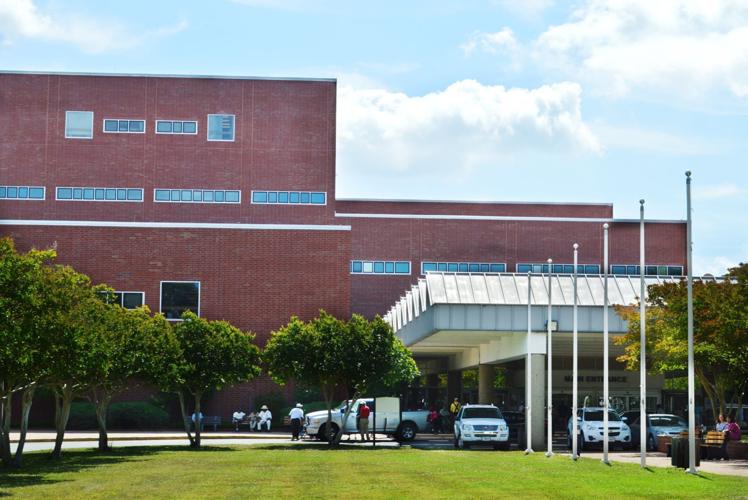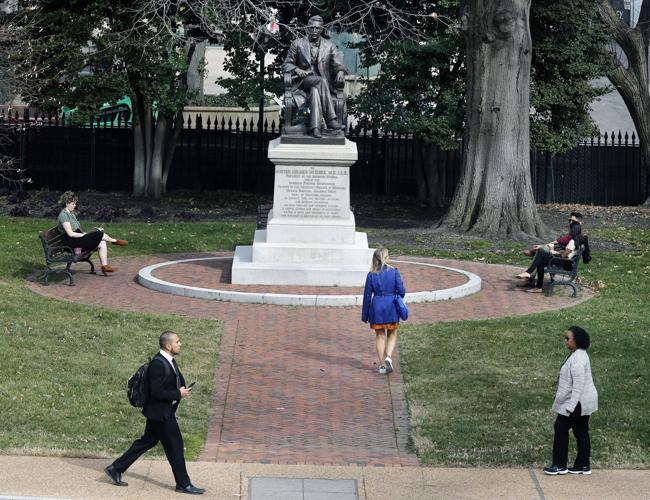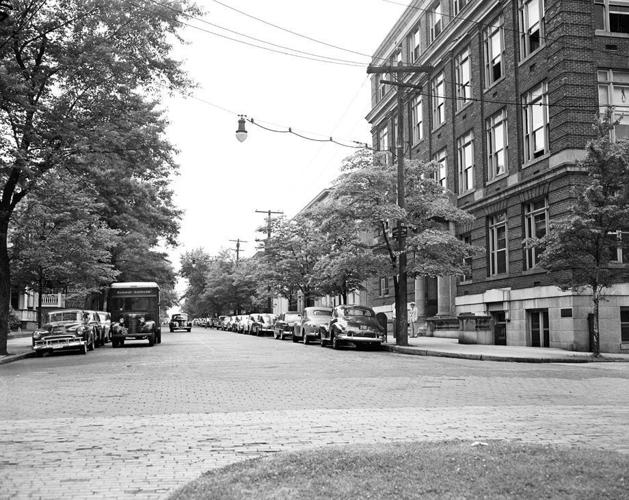Statues to the Confederate president, generals, soldiers and sailors have fallen by the wayside.
But Dr. Hunter Holmes McGuire, surgeon to Stonewall Jackson and the Confederate army, remains unmoved during this moment of racial reckoning, despite his unrepentant racism as a pusher of eugenics pseudoscience and Lost Cause propaganda until his death in 1900.
Our Veterans Administration Medical Center bears his name. Virginia Commonwealth University — a school with an inglorious past of robbing the graves of Black people for medical research — has a medical campus building named for him. A statue of McGuire stands in Capitol Square.
As the pandemic exacts a disproportionate toll on Black and brown lives, the pre-existing condition of racism has proven more deadly than the virus.
Medical science should be as much on trial as Confederate soldiers. But McGuire, who helped blaze a trail for the medical mistreatment of Black bodies, is venerated in the Richmond landscape.
“McGuire’s writings are more appropriate for a Grand Wizard of the KKK than a medical officer,” Richmonder Charles Pool wrote to me in an email.
Indeed, as president of the American Medical Association in 1893, McGuire co-authored an open letter titled “Sexual Crimes Among the Southern Negroes.”
He wrote: “In the South, the negro is deteriorating morally and physically; and, as the American Indian, the native Australian, the native Sandwich Islander, and other inferior races, disappear before the Caucasian, so the negro, in time, will disappear from this continent ... It is the frightful ‘survival of the fittest.’”
McGuire asked for “some scientific explanation of the sexual perversion in the negro of the present day.” His corresponding co-author, Dr. Frank Lydston, suggested castration as an alternative to the lynching of Black men.
In the same pamphlet, McGuire strayed dangerously close to being a lynching apologist in writing: “The newspaper men in the North … seem to see only the fearful spectacle of a hung, burnt or shot negro. They seem unable to see the innocent mutilated and ruined female victim …”
Of course, those lynching victims often were guilty of little more than being Black in the South.
In 1899, McGuire was at the forefront of purging textbooks with any mention of slavery as the cause of the Civil War as chairman of the history committee of the Grand Camp, Confederate Veterans of Virginia. And he railed against “suffrage to the blacks.”
In 1946, the VA hospital in Richmond would be named for McGuire.
Kyle Bibby, a former Marine captain whose tours of duty include Afghanistan, does not think much of this choice. He almost exclusively goes to VA medical centers for his health care needs.
As a Black man, “It is a slap in the face,” said Bibby, a New Jersey resident and national campaigns manager for Common Defense, an organization of politically progressive veterans.
For Navy veteran Tashandra Poullard of Houston, the legacy of McGuire brought to mind J. Marion Sims, the so-called “father of modern gynecology” who conducted painful experiments on enslaved Black women without the use of anesthesia. His statue stood in New York’s Central Park for more than a century before it was removed in 2018.
For her, McGuire represents a history of the medical profession using Black people as guinea pigs, based on the racist belief that Black skin was thicker and Black people more unfeeling of pain.
“A lot of these things are a result of trying to normalize the abuse of Black bodies, to make sure that Black people are not seen as human beings, dehumanizing us to justify our treatment,” Poullard said. “And the statues, the names of these buildings, all of these things are symbolic of ensuring that white supremacy still reigns supreme over people of color.”
McGuire might not have escaped the judgment of history.
VCU’s Committee on Commemorations and Memorials has recommended removing McGuire’s name from its medical campus building. Gov. Ralph Northam will be working with legislators to address specific statues, including McGuire’s, said his spokeswoman.
Ralph Jones Jr., spokesman for U.S. Rep. Donald McEachin, D-4th, who represents Richmond, said the congressman “would absolutely support the renaming of McGuire VA hospital.”
But Bibby, a Naval Academy graduate, says changing names is not enough. Communities, and particularly white residents, must reflect on the extent they’ve internalized the messages they’ve conveyed.
“What other ways have they affected how their community is framed and how it’s structured and who gets what, and who has access to resources and things like that? It seems like a small thing, but it’s really not. It’s an indicator of other things.”
Until there’s an autopsy, the white supremacy that gave rise to these symbols will remain alive and well.






